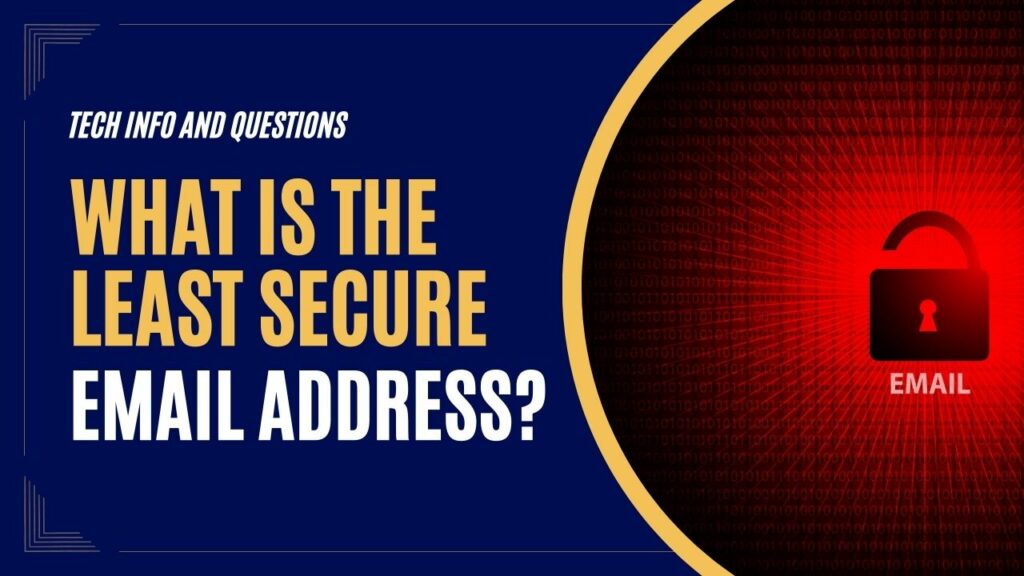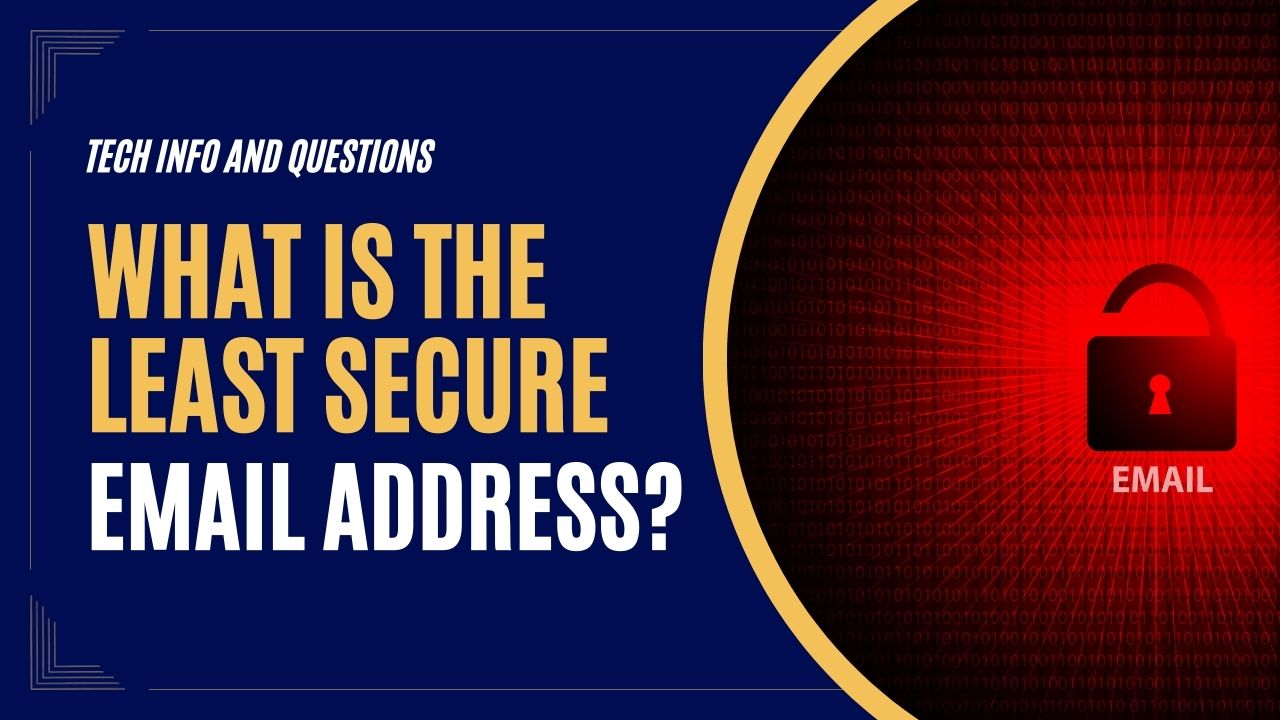 We use email frequently in our daily lives. It is crucial to be aware of all available safe email providers. The average person checks their personal and work email for more than five hours every day. Email is useful and effective, but it’s not really secure. Not if you’re utilizing a regular email service like Gmail or Outlook, at least. One of the simplest ways for hackers to obtain the data at your firm is through email. You need a secure email provider if you want to keep your email and all the everyday information sent securely.
We use email frequently in our daily lives. It is crucial to be aware of all available safe email providers. The average person checks their personal and work email for more than five hours every day. Email is useful and effective, but it’s not really secure. Not if you’re utilizing a regular email service like Gmail or Outlook, at least. One of the simplest ways for hackers to obtain the data at your firm is through email. You need a secure email provider if you want to keep your email and all the everyday information sent securely.
In this article, we answer: What is the least secure email? And what are the different red flags that you should be on the lookout for when choosing a reliable email provider?
What Are Secure Email Providers?
Your email account and the contents of your emails remain secure because of features offered by a secure email provider. Usually, end-to-end encryption accomplishes this. End-to-end encryption refers to the encryption of an email from sender to recipient during the whole transmission process. There is no agreed-upon definition of secure email, thus any provider can claim to be secure. For this reason, you must consider the type of encryption and other security procedures employed while selecting a secure email provider.
Why Do You Need a Secure Email Provider?
Let’s take a look at what happens when you send emails from a common service like Gmail to better appreciate why encrypted email is crucial. Gmail does not lack security features. Gmail uses Transport Layer Security (TLS) encryption to encrypt emails sent between your machine and the server. Google encrypts the data at the network level once it reaches the server. However, Google has access. Unlike before 2017, it no longer reads your emails to serve you adverts. However, Google continues to read your emails in order to offer features like Smart Reply.
Additionally, giving access to your emails to outside parties is simple for Gmail and other services. Your email is currently traveling to its destination after leaving Google’s server. The email will remain in transit if the recipient’s email service provider employs TLS. There will be no encryption process, and the email will be simple to intercept if the recipient does not utilize TLS. And even if the email is secure when it is being sent, it might not still be secure when it gets to the email server of the recipient. Certain email service providers don’t even encrypt emails on the server.
What makes email providers insecure?
When it comes to internet services that offer the highest level of security and data privacy, you frequently get what you pay for. For instance, user data revenue is routinely used to pay for free services. This results in privacy concerns and security risks because the service provider has a financial incentive to maintain access to your data. When it comes to email providers, any privacy policy that permits the business to access your mailbox could lead to the use of automated algorithms that look for keywords in your emails for marketing purposes.
In addition, it’s feasible that government snoops could obtain a warrant to access your communications if the email provider does not automatically provide safe client-side encryption for emails. Additionally, the risk of poor management and data leaks from the organization arises. Unauthorized users can take the server-side encryption keys from the email provider’s servers if end-to-end encryption is not used for emails on company servers.
What to look for in selecting your email provider
There are several features offered by various safe email providers. Here are a few things to think about. Some nations, including the US, gather and disseminate intelligence information gleaned through email servers. If government agencies are more of a concern for you than hackers, this may not be essential to you. However, an email service based in Switzerland, Germany, Belgium, Norway, or Sweden would be great for activists and other people who want to keep their correspondence out of the hands of the government. Their privacy regulations are all more stringent.
We’ve already covered the distinction between end-to-end encryption and transport encryption like TLS. Different types of end-to-end encryption exist. You can use symmetric or asymmetric encryption, for instance. Encryption and decryption of data happen using a single key in symmetric encryption. The sender and the receiver must both own this key. Asymmetric encryption, commonly referred to as public-key cryptography or encryption, encrypts data using two separate sets of keys. To encrypt the communication, the sender uses the recipient’s public key. This public key is mathematically connected to a recipient-only private key. A private key can decrypt the email. Although asymmetric encryption is slower and less efficient than symmetric encryption, it provides an additional degree of security.
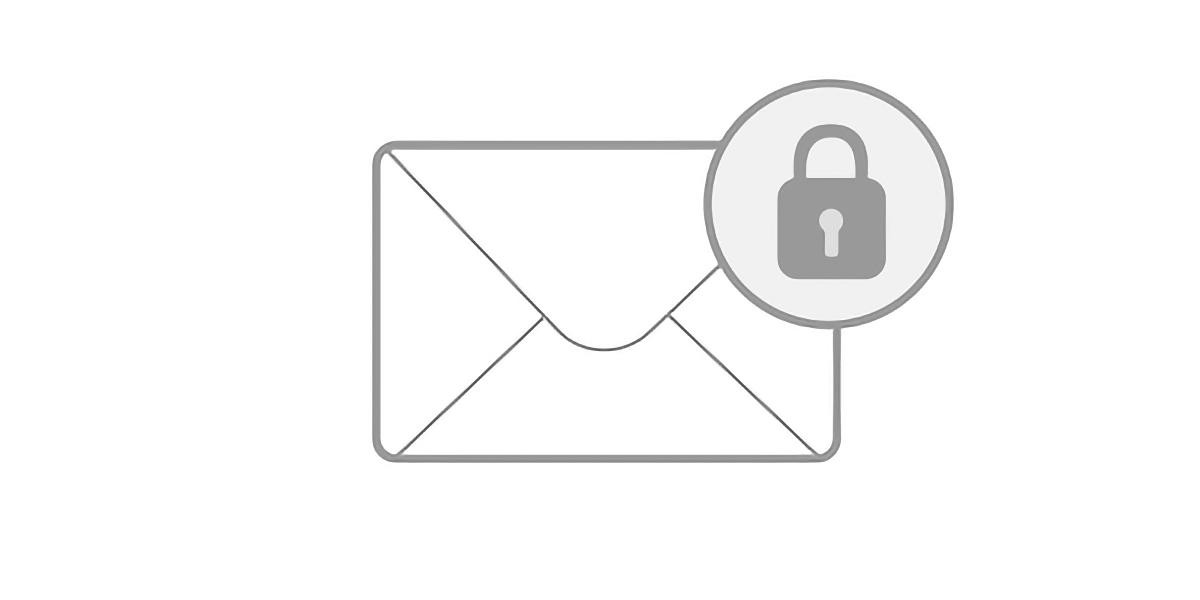
Making ensuring your account credentials are secure is equally vital to selecting a service with strong encryption. Because of two-factor authentication, simply knowing your password is not enough to access your email account. You’ll also require a different method of identification. Something you are aware of, like a password, is one factor. The second is something you already own, like a phone. Texting you a one-time code to use in conjunction with your login and password is one of the most popular types of two-factor authentication.
An email typically includes information about the sender’s computer, browser, and network as well as the recipient. Many secure email service providers remove this data. Users and developers can access the source code of open-source software. Anyone can check the product’s code to see if it is secure, so to speak. Other tools, like Google Calendar and Google Drive with Gmail, are helpful add-ons to your usual email service.
Certain secure email companies offer similar features, such as a private calendar or secure cloud storage, with encryptions. Although you are moving to secure email in order to encrypt your data, this does not negate the significance of the user experience. Choose an email provider that is compatible with mobile devices if you enjoy checking your email on the go. It’s not always possible to add a security provider to your preferred mail client program.
What are the least secure email providers?
This section will identify widely used email services that have a reputation for failing to protect user privacy and data security. These free email services are widely popular among many groups of people. However, switching to an email company that prioritizes your privacy is, in our opinion, far safer.
1. Yahoo Mail
The most contentious and unsafe email service on this list is likely Yahoo Mail. When journalists found evidence that Yahoo had given government snoops backdoor access to hundreds of millions of user accounts, the company’s reputation took a serious hit. Yahoo provided the government with a specially created tool that could backdoor Yahoo Mail accounts in bulk in order to grant the NSA access to such accounts. Then, all incoming emails underwent a targeted tool’s search for keywords and data supplied by US intelligence officers.
Yahoo continues to be a free email service that maintains total control over its users’ email vaults despite this scandal. It might therefore theoretically have access to anyone’s mail at any moment. What’s worse, the company’s server-side encryption puts the emails in danger of hacker attacks. Also noteworthy is the fact that Yahoo changed its status to a Verizon Media service in 2017, which necessitates your acceptance of Verizon Media’s terms of service in order to access Yahoo Mail.
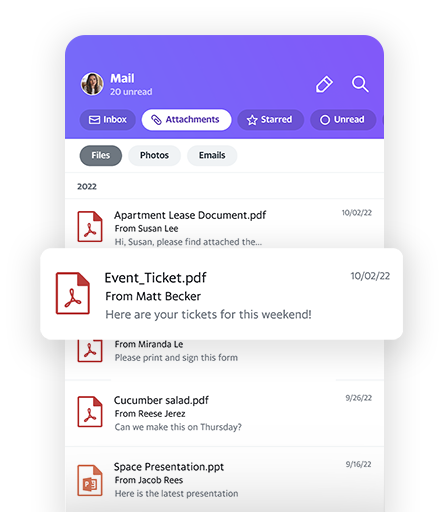
These conditions explicitly remind customers that personalization is at the heart of its services and that it will utilize its data in order to offer individualized services and advertisements. According to Verizon Media, it will follow users via “device IDs, cookies, and other signals, including information obtained from third parties”. These highly intrusive techniques render Yahoo Mail an extremely risky and private email service. If you had any questions about how Verizon Media will handle your personal emails, the following quote from its privacy statement should clear things up:
2. Apple Mail
Compared to the other email providers listed in this guide, Apple Mail is more private. For instance, Apple doesn’t use user emails for marketing. The company does, however, have access control over your emails, and it scans them on a regular basis to enhance its software offerings. However, Apple and iOS Mail have already had vulnerabilities found, and the corporation has come under fire for failing to properly recognize the seriousness of such vulnerabilities and for taking too long to address them. Security experts have expressed concerns about Apple’s capacity to protect email accounts in the event that users find more flaws.
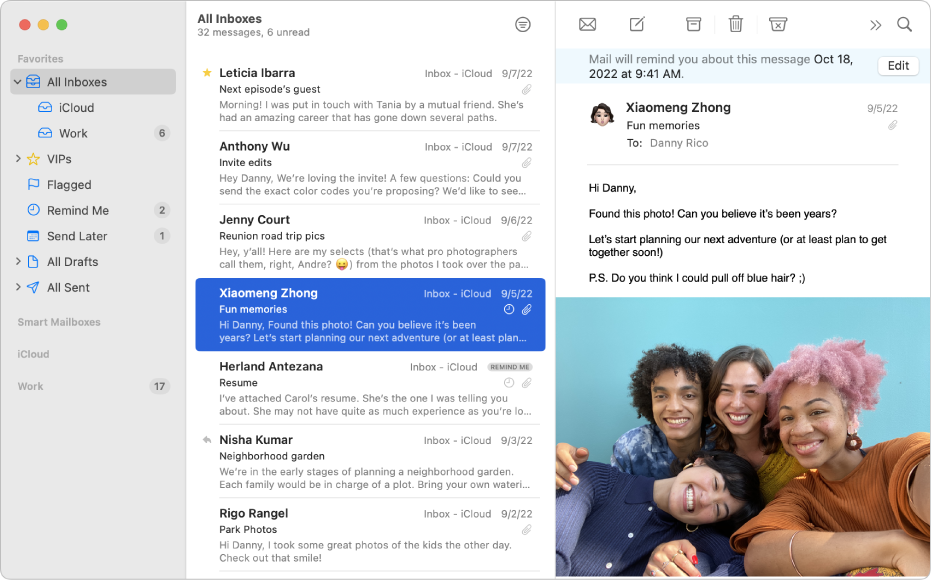
ZecOps, a mobile security company based in San Francisco, recently found two serious security weaknesses in iOS Mail. Due to those flaws, users were at serious risk for security breaches that might have given hackers access to their email accounts’ contents. ZedOps also claims that at least six actual hacks have used the Apple Mail App vulnerability.
3. AOL Mail
Another email service that has a negative reputation regarding customer privacy and data security is AOL Mail. The service was successfully acquired along with Yahoo in 2017, and as a result, it became a part of Verizon Media. AOL Mail users have no choice but to accept the terms of service and privacy policy of Verizon Media. This offers the business complete access to users’ incoming and outgoing emails, therefore by using the service, you agree to grant the business complete access to all of your emails:
According to the privacy statement, the business gathers a lot of personally identifiable data from users in order to track their behaviors, determine their interests, and provide them with tailored content and advertisements. Here are some examples: “device-specific identifiers and information such as IP address, cookie information, mobile device and advertising identifiers, browser version, operating system type and version, mobile network information, device settings, and software data.”
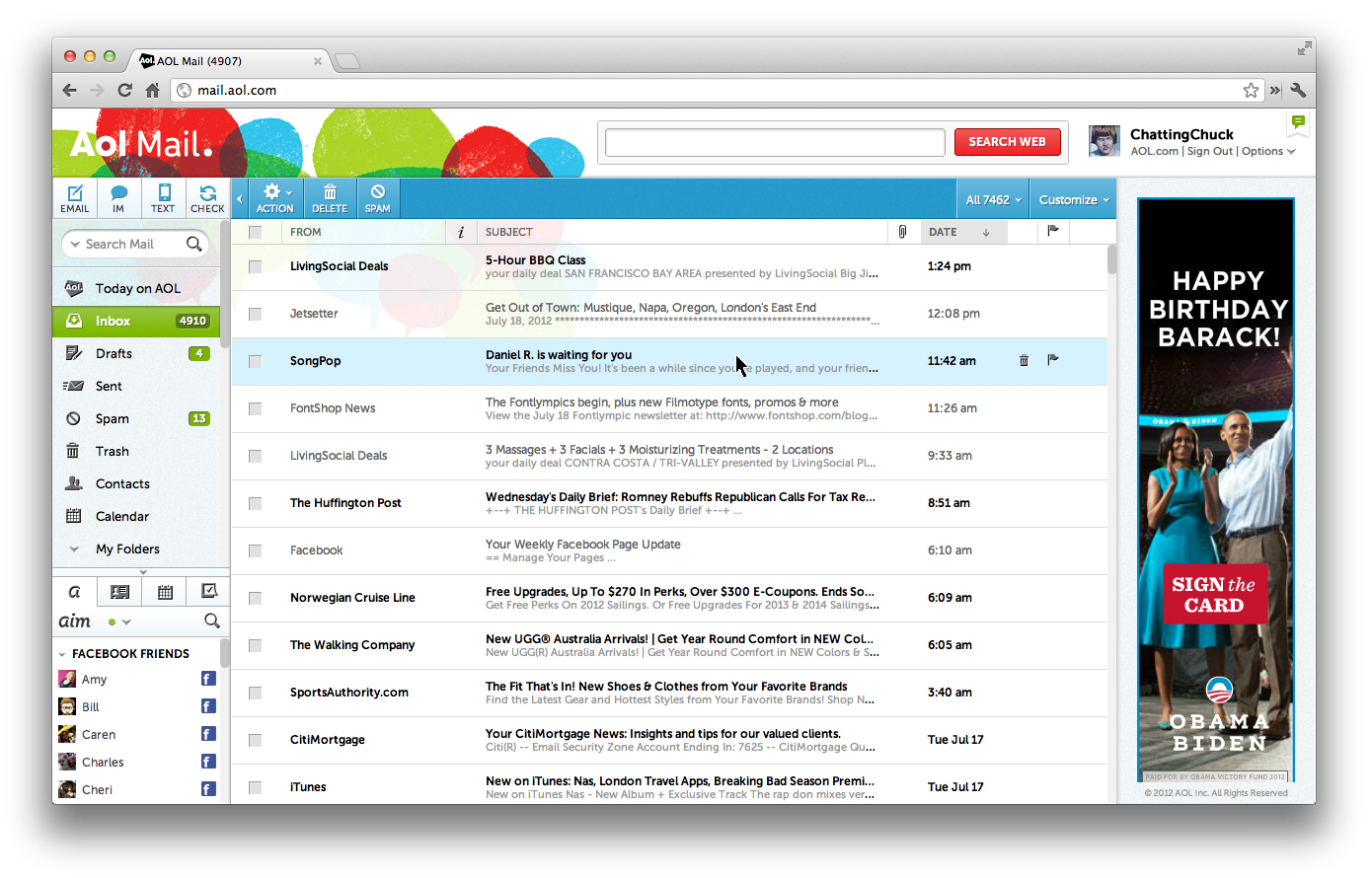
How Do Secure Email Providers Protect Your Email?
End-to-end encryption is a feature that the best secure email companies use to safeguard your emails. That indicates that nobody has access to your emails, not even the email provider. The recipient, who has authentication, is the only person who can read the encrypted emails. The Sender Policy Framework (SPF) is also something providers use to authenticate emails for further security. With SPF, the recipient will know that a non-authorized user sent the email. They will get the option to reject it if it is not from a recognized IP address.
Conclusion
Email has drawbacks but is nevertheless a must for corporate communication. Consider switching to a more secure service if you communicate any kind of private information over email. Moving to an email provider with strict privacy policies that promise not to scan emails and that offers email security like PGP natively within their apps to let you send emails that have end-to-end encryption is great for anyone interested in obtaining higher levels of email security.
FAQs
How secure is email?
It is acceptable to presume that emails aren’t actually secure when using them. Emails are not very secure, despite the fact that password encryption offers a limited amount of protection; there are countless email-based hacks every day. Emails pass via a number of networks and servers before they arrive in the inbox of the intended recipient. Email hacking is easy for insecure networks and exposed servers.
Additionally, once an email reaches the recipient’s inbox, it usually loses its encryption. Anyone with access to a compromised email account can readily evaluate the information inside. Additionally, hackers break into services that hold outdated emails and occasionally even hold emails you might have erased.
In terms of privacy, is email more secure than a letter?
Both are susceptible in various ways. The use, storage, and transmission of email are all dangerous. Letters are somewhat less vulnerable, but if a bad actor wants to carry out a significant attack, they can scan and circulate it electronically. No one can track a letter after opening it, but an email can if a hacker uses the correct technology.
Are emails private communications?
Emails are a type of digital conversation that exchange directly from one person to another, therefore they are private communications. Unauthorized people, however, can intercept emails can, thus they may not always be fully private. When communicating sensitive data, it is usually advised to employ secure communication techniques like end-to-end encryption.

